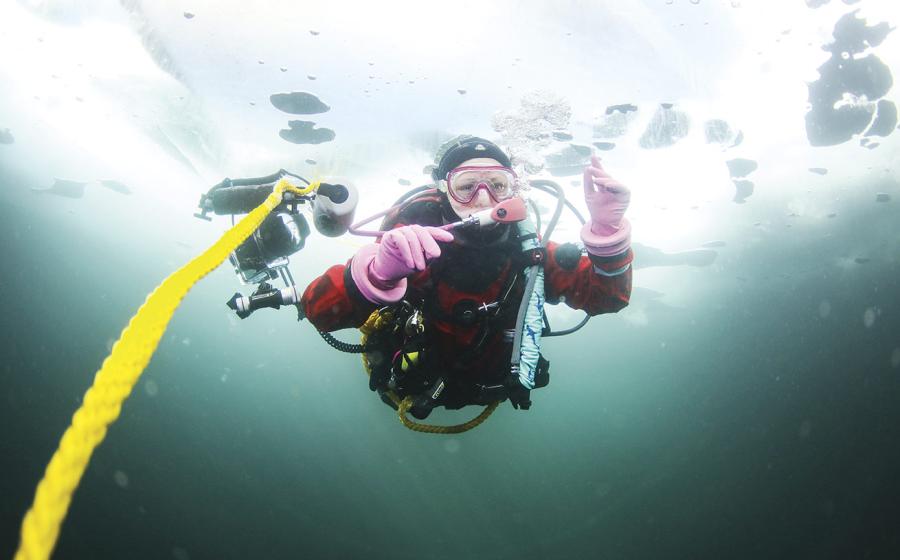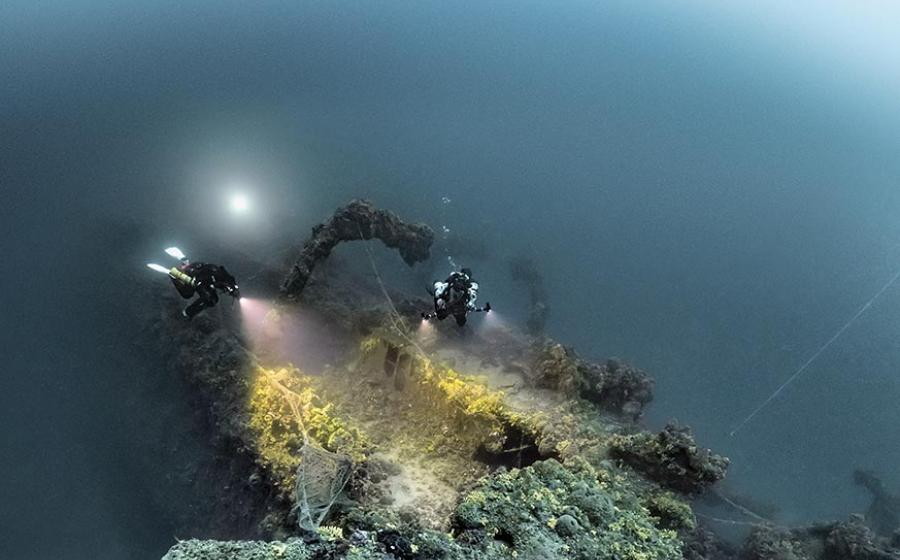Oris is Working with Pelagios Kakunja on Shark Conservation
Did you know Oris keeps track of endangered sharks?
The Swiss watch company’s mission to help protect the world’s oceans continues with a shark conservation project. Sharks will be extinct within 40 years. That’s the worrying prediction of leading ocean conservation experts who have witnessed the decline of the world’s shark population over the last five decades.
One of those experts is marine explorer and conservationist Jérôme Delafosse. Oris is now working with Jérôme on a shark conservation project in partnership with non-profit organization Pelagios Kakunjá.

Courtesy Pelagios KakunjaThe project will track the migratory patterns of the endangered Scalloped Hammerhead shark.
‘These days, you see fewer sharks than you used to,’ says Jérôme. ‘In less than 40 years, we will have pushed sharks to extinction. The only way to save them is to see them in all their beauty.’ Jérôme, who is also a professional diver, has spent the last 20 years observing the world’s shark and dolphin populations and has made a number of documentaries broadcast on French TV network Canal+ and the Travel Channel.
Pelagios Kakunjá’s mission is to understand the movements and migratory pathways of top marine predators. Its latest project will look to learn more about the migration routes of the endangered Scalloped Hammerhead (Sphyrna lewini) species of shark in the Eastern Pacific. According to the International Union for Conservation of Nature, the global population of Scalloped Hammerheads has declined by up to 90 per cent over the last 30 years.
Project scientists will tag five sharks using MiniPAT satellite transmitters funded by Oris. Each transmitter will track the sharks for six to nine months before being automatically released on a set date and floating to the surface, from where they will transmit collected data to satellites. This data will help scientists understand sharks better so they can advise government agencies on fishing practices. Fishing is one of the greatest threats to sharks, which can become entangled in nets while feeding.

Courtesy Pelagios KakunjaThe Scalloped Hammerhead sharks will be tagged with sophisticated trackers, funded by Oris.
The expedition will be lead by conservationists Dr. James Ketchum, Pelagios Kakunjá’s Director of Marine Conservation; shark specialist Dr. Mauricio Hoyos, who filmed the largest Great White Shark ever captured on film; and record-breaking freediver and underwater photographer Fred Buyle.
Oris is delighted to be working with Jérôme and to be supporting Pelagios Kakunjá’s latest mission. ‘This is another important step for us in our own mission to make a difference to the world’s oceans,’ said Oris Chairman Ulrich W. Herzog. ‘Oris is committed to underwater conservation and to reversing the human impact that has endangered species such as the Scalloped Hammerhead. Our hope and our belief is that Pelagios Kakunjá’s mission will be successful in helping achieve that goal.’

Courtesy Pelagios KakunjaOris is working with Pelagios Kakunja on a shark conservation project.
Jérôme Delafosse commented: ‘I know I speak on behalf of Pelagios Kakunjá and the team behind this vital mission when I say how thankful I am to Oris for its generous support. By tracking these sharks, we will learn crucial information about their migratory routes. In turn, we expect these findings to lead to new international measures that protect sharks and their environment.’
For more information about Pelagios Kakunjá, visit www.pelagioskakunja.org.









